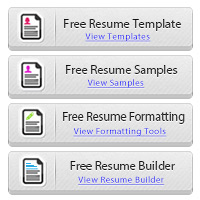
Staying in a job you Hate is Always a Challenge
Whether it is the boss, who is constantly pushing you to perform better and give the impossible one hundred and ten percent each day, your co-workers, who go out of their way at every opportunity to make you look incompetent at the tasks you complete without exception, or simply the job itself, that involves the most boring and mundane steps that you must grind away at every shift, working in a career that you hate it no easy task.
How long to stay in a job you hate?
Unfortunately, there is no single, clear-cut answer.
The days where you would leave school or university and get a job in whichever field of work you choose, where you would be content to stay throughout your life until retirement, are long gone. Changing your career more frequently is now normal commonplace, as shifting economy and industry developments have led to different expectations than what was once in demand.
But while moving between workplaces is not uncommon, you do not want to become known as someone who leaves at the first sign of trouble. Hiring managers don’t want to go through the effort of finding the right person, training them up and getting them comfortable with the work they will be performing, only for them to leave a few months later for something “better” that comes along.
There are a few points to weight up before moving on:
Have you stayed at any of your jobs for over two years?

This is important as it shows solidity in the workplace. Someone who changes career every year or so will be expected to maintain that throughout their life, meaning a hiring manager will overlook you if they’re after someone more permanent to fit into the role they are offering.
Does your resume show growth in any of your jobs?
Say you stayed in your first job for only three months then moved on to your second but was only there for eight months. It might sound and look bad at first, but if you started out as a sales clerk and became assistant store manager during that time, it proves that you were able to learn and overcome challenges, something that is highly sought after by almost every hiring person out there.
Does your resume have long periods where you were out of work?
Long gaps in employment history on your resume can and will appear as a bad thing. And I am not talking about two years off where you took a personal course or helped raise your children. I mean if every year or so you leave your job without having another to go to, then struggle to find work for several months before being employed by someone. This shows that you may want to bale as soon as difficulties arise and that you can’t handle stability in the workplace. It can also hint that you get bored easily, something that no hiring manager wants to see.
Finally, and most importantly, how badly do you hate your current workplace?
 Ideally, you should remain at each job for over a year as a minimum. However, if your workplace is too toxic, where it is affecting your home life, making things so unbearable that it is keeping you up at night and you can’t sleep, or where you are mentally drained to the point that you are physically forcing yourself to go to work every day, then it is time to leave.’
Ideally, you should remain at each job for over a year as a minimum. However, if your workplace is too toxic, where it is affecting your home life, making things so unbearable that it is keeping you up at night and you can’t sleep, or where you are mentally drained to the point that you are physically forcing yourself to go to work every day, then it is time to leave.’
You don’t want to make the mistake of staying at a job you hate to the point it is ruining your life, just to make things look good on the resume. But you also don’t want your resume to give the impression that you can not handle any challenges in the workplace, dislike being given the responsibility that comes with staying at a job for a length of time, and grow bored of your position quite easily.
It is like weighing things up on a set of scales
If you have a proven track record of sticking with your career for around two years or so before moving on, but just can’t seem to stand your current employment to the point it is affecting your life, then go. It will not diminish all hopes of being hired again because you have already proven yourself a more than capable worker.
But, on the other hand, if you have spent most of your career jumping between jobs, with the longest stint only sitting at around a year, then it might pay to stick it out a while longer. While it may be difficult, in the scheme of things it will prove yourself as responsible, able to handle stability and overcome challenges, all things a hiring manager will want to see ticked on their checklist form.
